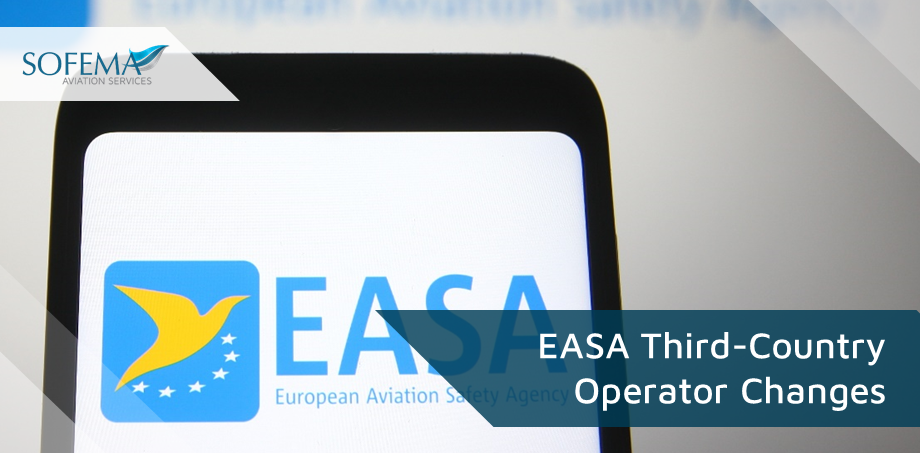Sofema Aviation Services (SAS) www.sassofia.com Considers the various implications following the issue of Regulation 2023/659 amending Regulation (EU) No 452/2014 as regards the technical requirements and administrative procedures related to air operations of third-country operators
Introduction
Europe has centralized the process to authorise third-country (non-EU) operators to perform commercial air transport operations to EU territories, thereby replacing various schemes of the EASA Member States previously in place.
Instead, a single safety authorisation is issued centrally by the European Union Aviation Safety Agency (EASA).
Background
The European Parliament and the Council tasked EASA to manage a single European system for vetting the safety performance of foreign air carriers. In doing so, EASA issues safety authorisations to foreign air carriers when satisfied that they comply with minimum international (ICAO) safety standards and applicable airspace user requirements in EU airspace.
Important Third-Country Operator Changes Overview
- It is necessary to remove the possibility for third-country operators to use mitigating measures to address non-compliance with relevant International Civil Aviation Organisation (ICAO) standards.
o Compliance with those standards needs to be achieved before a TCO authorisation is issued and any need for flexibility is to be addressed through a procedure laid down in Article 76(4) of Regulation (EU) 2018/1139.
- It is also necessary to amend the provisions allowing, within certain conditions, third country operators to carry out certain flights into, within or out of the territory subject to the provisions of the Treaties without first obtaining an authorisation, in order to increase legal certainty and improve efficiency.
- It is likewise necessary to improve the efficiency of the authorisation and oversight process of third-country operators and to increase legal certainty, namely by eliminating certain barriers to the digitalisation of the process, by further clarifying certain aspects related to the validity of third country operator’s authorisations, as well as certain procedural steps of the process undertaken by the Agency.
- To foster a risk-based approach in the authorisation process of third-country operators, it is necessary to consider the size, scope and complexity of the relevant operations to improve consistency. At the same time, it is also necessary to increase the oversight and enforcement means at the disposal of the Agency, specifically by allowing intensified surveillance of certain third-country operators and clarifying the provisions related to the issuance of findings, as well as the suspension and revocation of third country operator authorisations.
- It is similarly necessary to amend certain provisions of Regulation (EU) No 452/2014 to improve consistency with Regulation (EC) No 2111/2005 in particular by further clarifying the conditions and procedural steps to be taken by the Agency when receiving an application from a third country operator subject to an operating ban or an operational restriction pursuant to Regulation (EC) No 2111/2005.
- Finally, it is necessary to make several editorial amendments to the provisions of Regulation (EU) No 452/2014, namely, to update legal references to Regulation (EU) 2018/1139. In addition, some third-country operator changes to the definitions are proposed for reasons of consistency with Regulation (EU) 2018/1139.
Next Steps
Follow this link to our Library to find and download related documents for Free.
Please visit www.sassofia.com and www.sofemaonline.com – to register for a training program. Enroll through the website or email team@sassofia.com with any questions, comments or observations.
Tags:
EASA Third Country, International Civil Aviation Organisation (ICAO), SAS blog, European Aviation, Regulation EU 452/2014, Regulation (EU) 2018/1139, Regulation (EC) No 2111/2005, Regulation (EC) No 2111/2, Article 76(4), TCO authorisation, EU territories, EASA Member States





